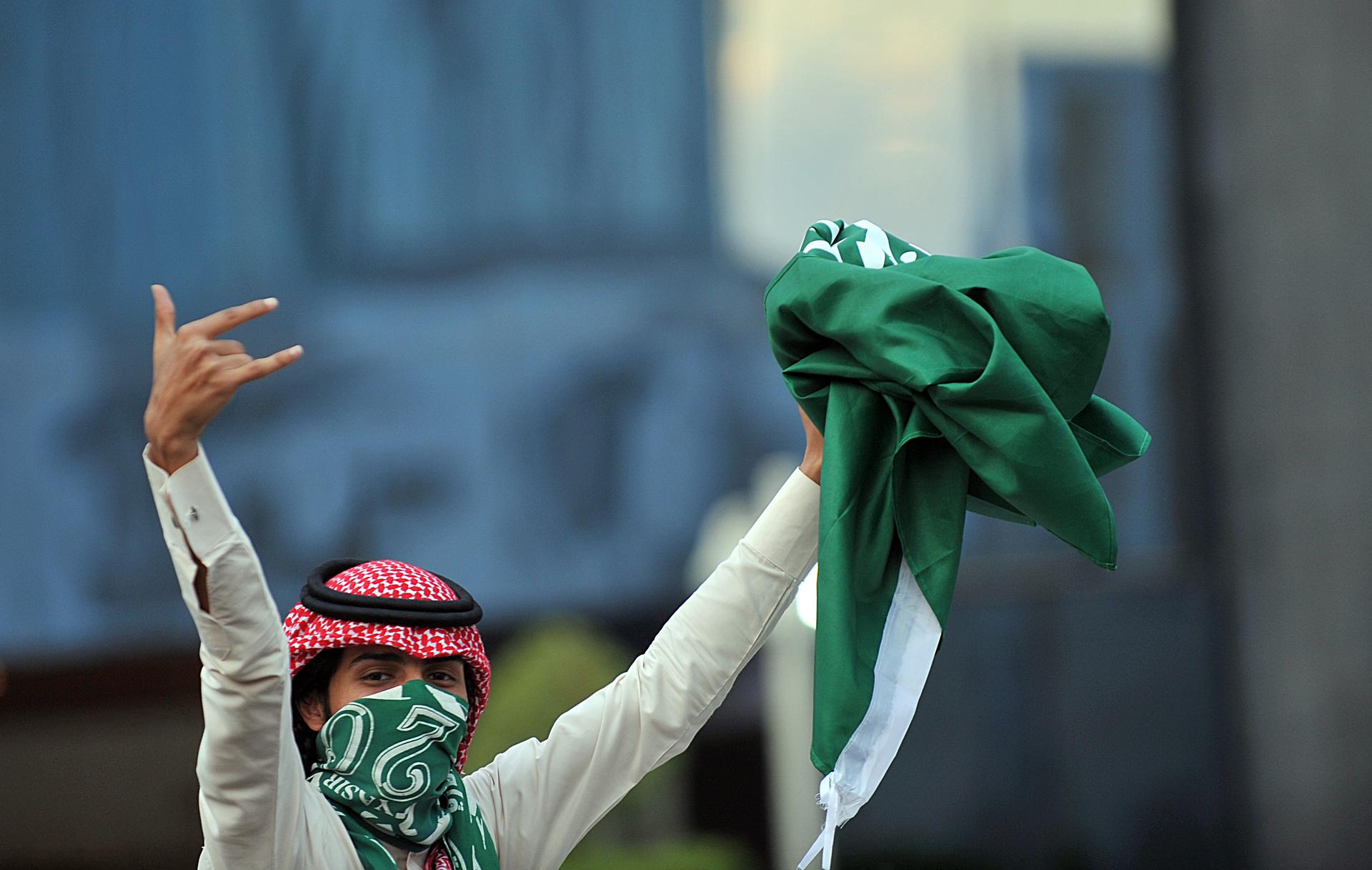A Saudi youth ‘awakening’?
A Saudi youth holds up a folded national flag during celebrations of the 81st Saudi Arabian National Day in the desert kingdom’s capital Riyadh on September 23, 2011.
Seventy percent of the Saudi population is under 30, and as many as 40 percent of those young people are unemployed. According to the kingdom's own statistics, holding a college degree almost doubles the chances of failing to find a job.
The frustration of being young and Saudi, led by a monarchy viewed by critics as arrogant, incompetent and repressive is finally producing a youth protest movement in a country where public dissidence is exceedingly rare and severely punished.
Last week 1,000 female students at King Khalid University rallied against the school's president after the university cancelled its cleaning services and garbage began to pile up and stink in the intense Saudi heat. The demonstration was dispersed with batons and water hoses, injuring more than 50 women. Then on Saturday an estimated 500 male students took up the cause, calling for the resignation of university president Abdullah Al-Rashid.
More from GlobalPost: Opinion: Internet changing Saudis' relationship with authority, not religion
Some of the protesters told media outlets that their demands were not political, expressing loyalty to Saudi King Abdullah.
But local governor Prince Faisal bin Khaled condemned the protests, warning, "We will not be lenient with anyone, whoever may it be, who play with the security of the country."
Amnesty International reported this week that the Saudi government continues to incarcerate at least six men who had planned to take part in a "Day of Rage" last March 11. Only one of the men is believed to have actually demonstrated and Amnesty's Middle East director Philip Luther said the year-long detentions were preposterous.
"Holding people for a year merely for intending to protest is completely unconscionable," he said.
Saudi Arabia has largely resisted the "Arab Awakening" that swept the region in 2011, as the royal family used a combination of force and distribution of subsidies to nullify protest. King Abdullah has announced limited social and judicial reforms in recent years, including granting women the right to vote last September. But Saudi women are still banned from driving cars, running businesses or entering major government buildings and must cover themselves in head scarves and abayas in public.
More from GlobalPost: Opinion: Saudi women's suffrage mired in suppression
Saudi remains a highly conservative society rooted in the very conservative Wahhabist Islamic tradition and led in part by the ulema — a body of Islamic religious leaders.
This month's student demonstrations, however, represent a side of Saudi society that has rarely been seen before, confirmed GlobalPost senior correspondent Caryle Murphy, who last year authored a comprehensive series titled, "Saudi Arabia: The Road Beyond 9-11."
As GlobalPost executive editor Charles Sennott reported in the same series, many Saudi youths are "drifting," both metaphorically and literally as they engage in a dangerous hobby wherein drivers intentionally lose control of their luxury vehicles at extremely high speeds "with tires burning and brakes smoking."
As traffic fatalities pile up among bored and angry youths and garbage piles up at one of the Middle East's largest universities, it appears that Saudi Arabia may have an "awakening" on its hands after all.
Every day, reporters and producers at The World are hard at work bringing you human-centered news from across the globe. But we can’t do it without you. We need your support to ensure we can continue this work for another year.
Make a gift today, and you’ll help us unlock a matching gift of $67,000!
